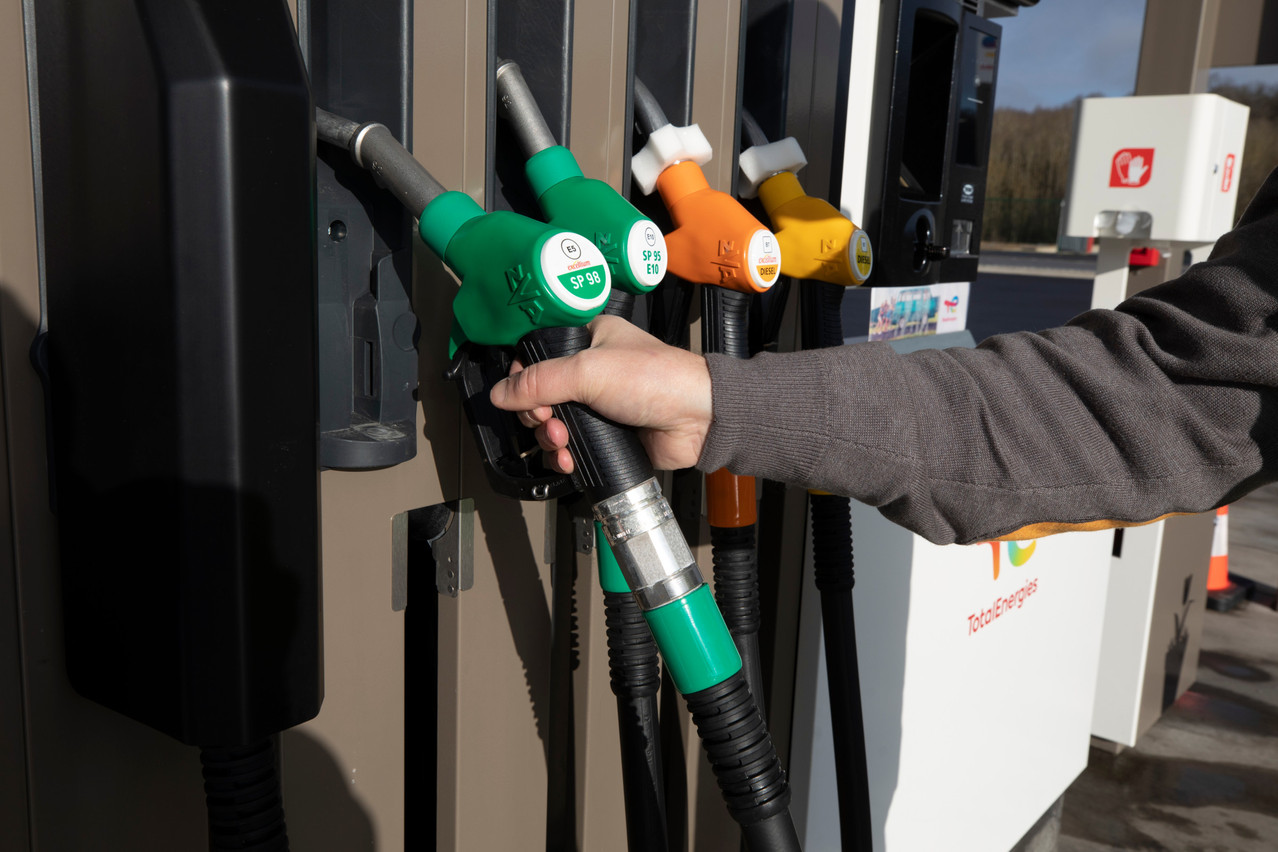According to the economic report of Statec, Luxembourg’s statistics bureau, tax revenues rose by 7.2% in 2022 with more than €21bn collected. This growth in revenue is explained by high inflation, which has had an impact on VAT receipts, household taxes, social security contributions and therefore on tax receipts.
The sale of fuel generated less revenue last year, however.
Luxembourg less attractive at the pump in 2022
In detail, while excise revenues from tobacco still increased in 2022 (+16% year-on-year), Statec indicates that those from petroleum products fell by 11%. “This decline is linked to the sharp rise in fuel prices which led to temporary reductions in excise duties in Luxembourg and neighbouring countries,” the statistical institute said.
These reductions, compounded with certain policies instated across the border, did not encourage motorists to fill up at Luxembourg service stations--which in terms of price. “The various discounts have temporarily reduced, or even reversed, the differences in pump prices between Luxembourg and neighbouring countries, resulting in a drop in fuel sales of -10% over one year for petrol and -20% for diesel between June and October 2022,” Statec reported.
However, prices in Luxembourg became more advantageous again from November onwards, allowing fuel sales and related excise duties to rebound by 1.1% between the third and fourth quarters.
Inflation rises, so does tax revenue
The growth in tax revenues collected by the state is also explained by the effects of inflation. More specifically, the inflationary surge over the past year has boosted VAT receipts (+12% between 2021 and 2022), but also household taxes (+10%) and social security contributions (+8% over one year at the end of the third quarter).
The growth of wages--with two indexations, respectively in October 2021 and April 2022--and employment (+3.6% over one year at the end of the third quarter) has caused the taxes withheld from wages and salaries to rise by 11% over one year. As a result, the rise in prices and salaries contributed to 60% of the increase in taxes on households (+4.3% in volume) and VAT receipts (+5.6% in volume).
Corporate income tax stagnates
As far as companies are concerned, Statec points out that corporate taxes are almost stagnant, growing by +0.5% year-on-year due to a sharp decrease in tax balances on previous years (-37% year-on-year at the end of October), while advances--which are more dependent on current economic activity--grew by 11%.
On the other hand, the subscription tax--which applies to the assets under management of collective investment schemes and specialised investment funds--has been affected by the downward trend in stock markets in 2022. The stabilisation of revenues collected from this tax (+0.04% in 2022 after +22% in 2021) masks strong volatility over the year. They rose in the first quarter (+3.4% over one quarter) and then fell over the last three quarters due to the decline in the value of fund assets (-6% in the second quarter, -7% in the third and -2% in the fourth).
The article in Paperjam. It has been translated and edited for Delano.
